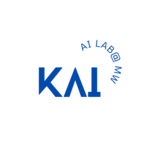Chichewa NLP
Chichewa is an important African language. There are differences between the main dialects of Chichewa and the language is undergoing continuous change. Chichewa continues to change as new terms are added to the vocabulary arising from technological needs for example. Its use by the younger generation creates new idioms and meaning, and the creative expressions through poetry and literature find venues online. Looking at language in new and novel ways using technology, can also help engage with the new generation in how they use, view and develop their language.
We aim to develop datasets by organising Chichewa text into useful corpora and methods for language analysis that can support linguistic work, e.g. tools for manipulating and comparing text, for finding and visualising connections between texts and tools for improving machine translation.
Below is a list of ongoing Chichewa NLP projects, along with links to their respective project pages.
 KAI LAB
KAI LAB